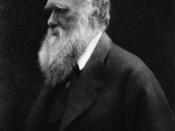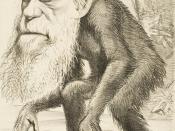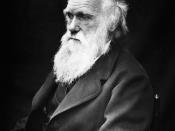Charles Darwin didn't just have an impact on the scientific community of Victorian England; he had an impact on the masses as well. His theories had a very important impact on the emerging working class, or the so-called "proletariat." The Industrial Revolution, which began in the 18th century in England, produced a new urban, working class. Science and scientific education were evolving as well, as theories of evolution, creation of man, and natural history were circulating throughout all of Europe. As Darwin's theories began to circulate throughout Europe, they eventually trickled down to the working classes. Although the working class in England was much less educated than the higher classes, they still found ways of getting their information, and keeping up to date with scientific research.
The British Press, which often only catered to the more educated, began to introduce Darwinian debate into the less expensive, less prestigious periodicals, which were distributed in mass numbers to the working class.
These periodicals gave the working class a foundation to base their opinions about Darwin's theories. They were not always the best sources for accurate information, and often encouraged the union of evolution and religion. The other, more radical, reaction to Darwin's theories amongst the working classes came from the Socialist movement, which encouraged incorporation of natural history into general education. The Socialists created Mechanics' Institutes and Halls of Science, which were used as arenas of scientific learning and discussion. They often used evolutionary theories to promote atheism, which is perhaps one of the reasons that they were not as large of a movement as one might expect. The British Press along with the Socialist scientific movement helped to convey Darwin's theories to the English working class, creating an incorporation of his theories into their religious beliefs and a desire for scientific...


